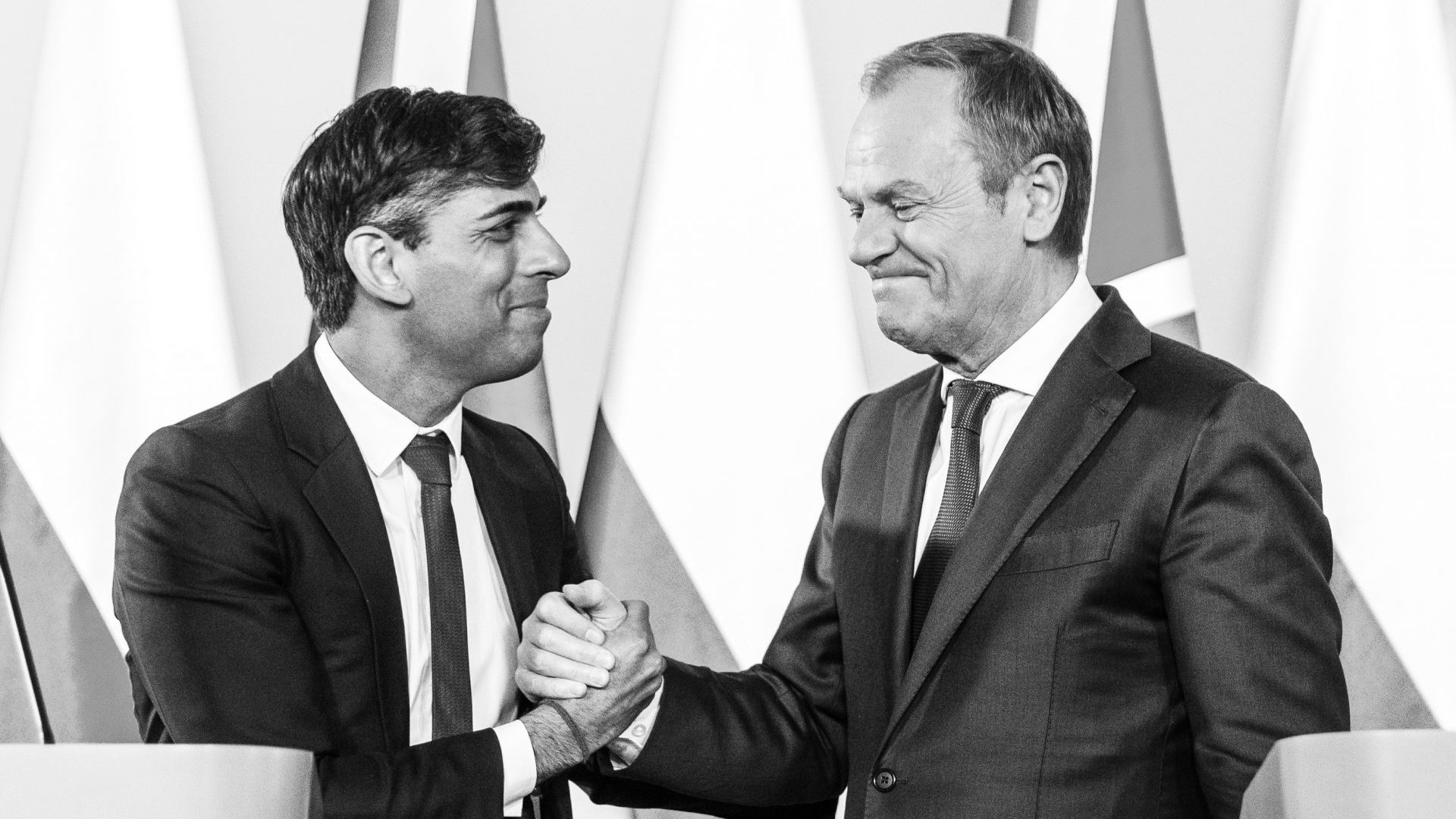Donald Tusk, the Polish prime minister and former president of the European Council, knows how to get up Brexiteer noses – “like mustard”, as the French say.
Earlier this month, to celebrate the 20th anniversary of his country joining the EU, Tusk pointed out that on current trends the Polish economy will overtake that of the UK by 2030, if measured by GDP per capita.
This might have been posturing for votes at home ahead of what look like being difficult European elections in Poland – Tusk’s coalition has been accused of not moving fast enough on key issues like liberalising abortion – but over here it rattled the cage of the right wing commentariat. The usual suspects quickly churned out articles with outraged headlines, which after a couple of paragraphs of bellicose huffing and puffing all seemed to basically end up saying, “he’s got a point”.
The veracity of Tusk’s claim depends very much on what figures you use, and a recognition that economic forecasting that far ahead is not very reliable. Yet the basic fact is that EU membership lit a rocket under the Polish economy 20 years ago, and it is still going strong.
I remember visiting the Polish-German border shortly after the Poles joined. Already, the area was dotted with French, Dutch, Belgian and especially German firms, which had moved huge amounts of production to Poland. Factories were springing up all over the place, and the infrastructure to help them do that was being provided by EU funds in huge amounts.
Poland is right at the heart of Europe. Its workforce is well-educated, young, dynamic, hard-working and cheap – or at least cheaper than French, Dutch, Belgian and German workers.
Since joining the EU, having resolved to throw off the wasted decades of communist rule and go for growth, Poland has set record after record. Up until 2019 and then Covid, the Polish economy had grown for 28 straight years, a record in the EU. In the whole of the world only Australia had a better record.
Polish GDP per capita has grown by 6% a year, every year, for the last 20 years, and the total economy is now seven times bigger than it was in 1990. Growth last year was a disappointing 0.2% in Poland, but this year it is expected to shoot up to 2.7% – that is three times the UK’s rate. Next year it should accelerate again to 3.2%.
It is of course almost impossible for older, more established economies to match that growth rate. Much of what Poland has done over the last 30 years or so has been about trying to bring its economy up to the level of the rest of the EU.
There is plenty of growth to be found if you have to rebuild your road and rail network, build cutting-edge high-tech factories on greenfield sites, privatise hundreds of inefficient state-owned companies, build new homes and revitalise towns and cities, together with cleaning up the environment. But then being in the EU meant Poland could attract billions of pounds worth of inward investment from around the world, win more billions of EU aid and help release decades of frustrated ambition.
Agriculture benefitted from the Common Agricultural Policy, and Poland’s youth could access jobs, money and training in the UK because of freedom of movement.
All this explains why Brexiteer commentators see Poland as such a threat. The growth it has enjoyed could not have happened without the EU. And it highlights all those benefits of EU membership we have thrown away – the ones that bring growth.
By now, we all know that Brexit alone has cost the UK 4-6% of economic growth. It was always inevitable that fast-growth tiger economies like China’s would overtake those of slower-growing developed nations like us, but now we are being caught up by Eastern European states who were stuck behind the Iron Curtain for decades.
It is not just Poland. Look at growth rates in Slovakia – 2.3% this year and 2.6% next – or Czechia; 1.1% this year and 2.8% next.
Brexiteers love to talk about the need to become “global Britain” as trade with our established European neighbours becomes less important. Yet the EU is not just about trading with traditional economies like Italy – it is about fast-growing economies like Poland’s.
If we had stayed in the single market, we would be doing more and more business with the Poles, the Slovaks, the Czechs. We have young, dynamic, ambitious economies on our doorstep, and we have abandoned them for the promise of much worse trade deals with countries on the other side of the world.
That is why the claims of Tusk are so painful for the right wing media (who, by the way, don’t seem to mind when Kemi Badenoch makes statements about growth that rely on one interpretation of figures). It is because they cannot bear to be reminded of what their pet project has cost the country.
I have always used the metaphor of airport queues to illustrate Brexit.
In 20 years’ time there will be two queues at the airport: the Brits in one queue and EU passport holders in the other. Either it will be us Brits looking at the EU queue and thinking, “Those people are better dressed than us, their luggage is nicer and they’re flying business class”, or the EU passport holders will be looking enviously at us.
On current trends it isn’t going to be just the French, Germans, Swedes and Dutch we will look at with jealousy. We are going to be jealous of the Polish, the Czechs, the Slovaks, the Latvians and all the rest too – and even sooner than we thought.




